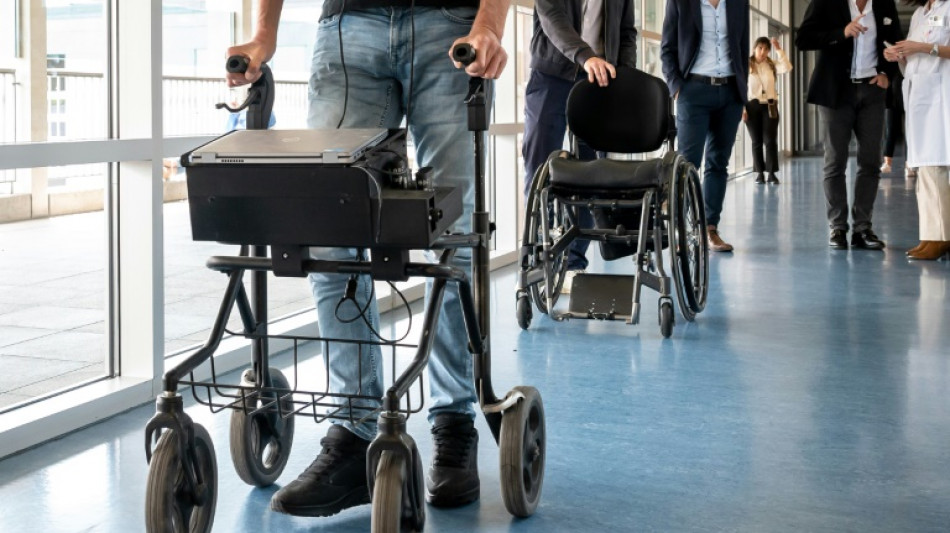
-
 Australia reeling on 72-4 at lunch as England strike in 4th Ashes Test
Australia reeling on 72-4 at lunch as England strike in 4th Ashes Test
-
Too hot to handle? Searing heat looming over 2026 World Cup

-
 Packers clinch NFL playoff spot as Lions lose to Vikings
Packers clinch NFL playoff spot as Lions lose to Vikings
-
Guinea's presidential candidates hold final rallies before Sunday's vote

-
 Villa face Chelsea test as Premier League title race heats up
Villa face Chelsea test as Premier League title race heats up
-
Spurs extend domination of NBA-best Thunder

-
 Malaysia's Najib to face verdict in mega 1MDB graft trial
Malaysia's Najib to face verdict in mega 1MDB graft trial
-
King Charles calls for 'reconciliation' in Christmas speech

-
 Brazil's jailed ex-president Bolsonaro undergoes 'successful' surgery
Brazil's jailed ex-president Bolsonaro undergoes 'successful' surgery
-
UK tech campaigner sues Trump administration over US sanctions

-
 New Anglican leader says immigration debate dividing UK
New Anglican leader says immigration debate dividing UK
-
Russia says made 'proposal' to France over jailed researcher
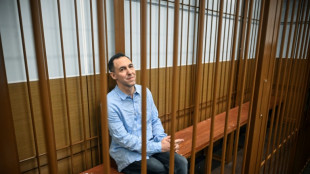
-
 Bangladesh PM hopeful Rahman returns from exile ahead of polls
Bangladesh PM hopeful Rahman returns from exile ahead of polls
-
Police suspect suicide bomber behind Nigeria's deadly mosque blast

-
 AFCON organisers allowing fans in for free to fill empty stands: source
AFCON organisers allowing fans in for free to fill empty stands: source
-
Mali coach Saintfiet hits out at European clubs, FIFA over AFCON changes

-
 Last Christians gather in ruins of Turkey's quake-hit Antakya
Last Christians gather in ruins of Turkey's quake-hit Antakya
-
Pope Leo condemns 'open wounds' of war in first Christmas homily

-
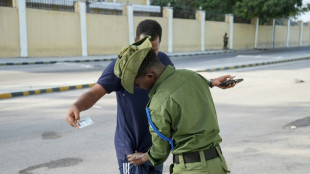 Mogadishu votes in first local elections in decades under tight security
Mogadishu votes in first local elections in decades under tight security
-
'Starting anew': Indonesians in disaster-struck Sumatra hold Christmas mass

-
 Cambodian PM's wife attends funerals of soldiers killed in Thai border clashes
Cambodian PM's wife attends funerals of soldiers killed in Thai border clashes
-
Prime minister hopeful Tarique Rahman arrives in Bangladesh: party

-
 Pacific archipelago Palau agrees to take migrants from US
Pacific archipelago Palau agrees to take migrants from US
-
Pope Leo expected to call for peace during first Christmas blessing

-
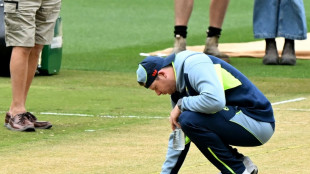 Australia opts for all-pace attack in fourth Ashes Test
Australia opts for all-pace attack in fourth Ashes Test
-
'We hold onto one another and keep fighting,' says wife of jailed Istanbul mayor

-
 North Korea's Kim visits nuclear subs as Putin hails 'invincible' bond
North Korea's Kim visits nuclear subs as Putin hails 'invincible' bond
-
Trump takes Christmas Eve shot at 'radical left scum'

-
 3 Factors That Affect the Cost of Dentures in San Antonio, TX
3 Factors That Affect the Cost of Dentures in San Antonio, TX
-
Leo XIV celebrates first Christmas as pope

-
 Diallo and Mahrez strike at AFCON as Ivory Coast, Algeria win
Diallo and Mahrez strike at AFCON as Ivory Coast, Algeria win
-
'At your service!' Nasry Asfura becomes Honduran president-elect
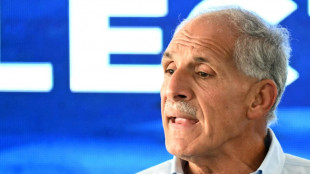
-
 Trump-backed Nasry Asfura declared winner of Honduras presidency
Trump-backed Nasry Asfura declared winner of Honduras presidency
-
Diallo strikes to give AFCON holders Ivory Coast winning start
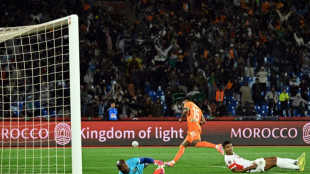
-
 Spurs captain Romero facing increased ban after Liverpool red card
Spurs captain Romero facing increased ban after Liverpool red card
-
Bolivian miners protest elimination of fuel subsidies

-
 A lack of respect? African football bows to pressure with AFCON change
A lack of respect? African football bows to pressure with AFCON change
-
Trump says comedian Colbert should be 'put to sleep'

-
 Mahrez leads Algeria to AFCON cruise against Sudan
Mahrez leads Algeria to AFCON cruise against Sudan
-
Southern California braces for devastating Christmas storm

-
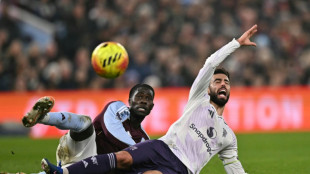 Amorim wants Man Utd players to cover 'irreplaceable' Fernandes
Amorim wants Man Utd players to cover 'irreplaceable' Fernandes
-
First Bond game in a decade hit by two-month delay

-
 Brazil's imprisoned Bolsonaro hospitalized ahead of surgery
Brazil's imprisoned Bolsonaro hospitalized ahead of surgery
-
Serbia court drops case against ex-minister over train station disaster

-
 Investors watching for Santa rally in thin pre-Christmas trade
Investors watching for Santa rally in thin pre-Christmas trade
-
David Sacks: Trump's AI power broker

-
 Delap and Estevao in line for Chelsea return against Aston Villa
Delap and Estevao in line for Chelsea return against Aston Villa
-
Why metal prices are soaring to record highs

-
 Stocks tepid in thin pre-Christmas trade
Stocks tepid in thin pre-Christmas trade
-
UN experts slam US blockade on Venezuela


Brain stimulation can help injured people walk: study
Scientists said Monday that electrically stimulating a particular region in the brain could help people with injured spinal cords walk more easily, with one patient describing how the technique allowed him to conquer his fear of stairs.
The new technique is intended for people with spinal cord injuries where the connection between their brain and spinal cord has not been totally severed, and who still have some movement in their legs.
Wolfgang Jaeger, one of two patients who took part in an early trial, said that it immediately made a "big difference" to his mobility.
"Now when I see a staircase with just a few steps, I know I can handle it on my own," the 54-year-old said in a video released alongside a new study in the journal Nature Medicine.
The research was conducted by a Swiss team that has pioneered several recent advances, including using electrical stimulation of the spinal cord to let several paralysed patients walk again.
This time around, the researchers wanted to figure out which region of the brain was most responsible for people recovering from spinal cord injuries.
- 'I feel the urge to walk' -
Using 3D imaging techniques to map out the brain activity of mice with these injuries, the team created what they called a "brain-wide atlas".
They were surprised to find that the brain region they were looking for was in the lateral hypothalamus, which is otherwise known as a regulator for arousal, feeding and motivation.
A particular group of neurons in this region "appears to be involved in the recovery of walking after spinal cord injury," neuroscientist Gregoire Courtine at Switzerland's Ecole Polytechnique Federale de Lausanne told AFP.
Next, the team sought to amplify the signal from these neurons using a procedure called deep brain stimulation, which is commonly used to treat movement problems in people with Parkinson's disease.
It involves a surgeon implanting electrodes in the brain region, which are connected to a device implanted in the patient's chest. When switched on, the device sends electrical pulses up to the brain.
First, the team tested their theory on rats and mice, finding that it "immediately" improved walking, the study said.
The first human participant of the 2022 Swiss trial was a woman who, like Jaeger, has an incomplete spinal cord injury.
Neurosurgeon Jocelyne Bloch told AFP that when the women's device was turned on for the first time, she said: "I feel my legs."
When they turned up the electrical current, the women said, "I feel the urge to walk," according to Bloch.
The patients could turn on their device whenever they needed, and also went through months of rehab and strength training.
The woman's goal was to walk independently without a walker, while Jaeger's was to climb stairs by himself.
"Both of them reached their goal," Bloch said.
- 'No problem' -
Jaeger, who is from the Swiss municipality of Kappel, spoke about facing eight steps down to the sea during a holiday last year.
With the device turned on, "walking up and down the stairs was no problem," he said.
"It's a great feeling when you don't have to rely on others all the time."
Over time, he "became faster and could walk longer" even when the device was switched off, he added.
More research is still needed -- and this technique will not be effective for all patients, Courtine emphasised.
Because it depends on boosting the brain's signal to the spinal cord, it depends how much signal was getting through in the first place.
And while deep brain stimulation is now fairly common, some people are not so "comfortable with someone operating on their brain," Courtine added.
The researchers believe that in the future, the best option for recovering from these kinds of injuries could be stimulating both their spinal cord and lateral hypothalamus.
L.Miller--AMWN

